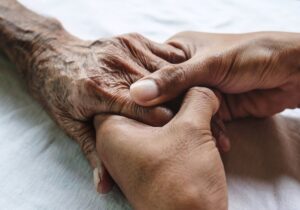“The last week has been quite painful and unsettling for me. If all that could go wrong could, it did. From losing my phone to writing a paper I didn’t prep well enough for to doing work where I felt I wasn’t giving my best. I started telling myself the same lies that always seem to show up when failure happens – “You messed up. Not good enough. You’ve let people down.”
However, it’s also been a week of learning a lot more about failure and discipline. Discipline has caused me to become a more grace-filled human. I never thought discipline would be the thing to teach me about grace but it has.
Habits don’t form without failure. Relationships don’t grow without failure. We don’t become who we were made to be without failure. It’s necessary. Failure will either be a catalyst that propels you forward in the direction you need to head or a roadblock that keeps you standing in one place. No one starts something new and gets it right the first week. Discipline doesn’t evolve overnight and that’s because building discipline coincides with building character. Neither are quick and instant.
You need to give yourself grace to fail.
Give yourself grace to be in process. You need to be able to fall down or mess up if you ever want to be a stronger person. The strong isn’t one who never messed up. The strong person messes up and keeps going anyway. The strong person never quits.
Think about the amount of small things we mess up on a daily basis and how hard we knock ourselves down because of them? You ate the cake. You missed the workout. You forgot about the meeting. You didn’t prepare enough for the test. It’s all a lot of small stuff but we kill ourselves with criticism to make ourselves feel just as small as the issue.
Failure is inevitable. It happens to all of us. What matters more is how you speak to yourself when the failure happens. Are you kind? Do you give yourself grace? Are you the only one in your world who doesn’t extend grace when you mess up?
Be careful with how you speak to yourself this week. Note the small talk happening in your head when you get it right and when you get it wrong. You might fail six or seven times before something finally sticks and you see a change in yourself. That’s okay. It matters that you keep getting up and showing up. It matters that you learn to speak to yourself with more grace and kindness. Don’t underrate kindness. The notion “be kind” doesn’t just invite you to be kind to your neighbor or friends. Be kind is a statement for yourself. It is something you need to practice when the small talk turns on in your brain. Be kind to yourself and be good to others.”







